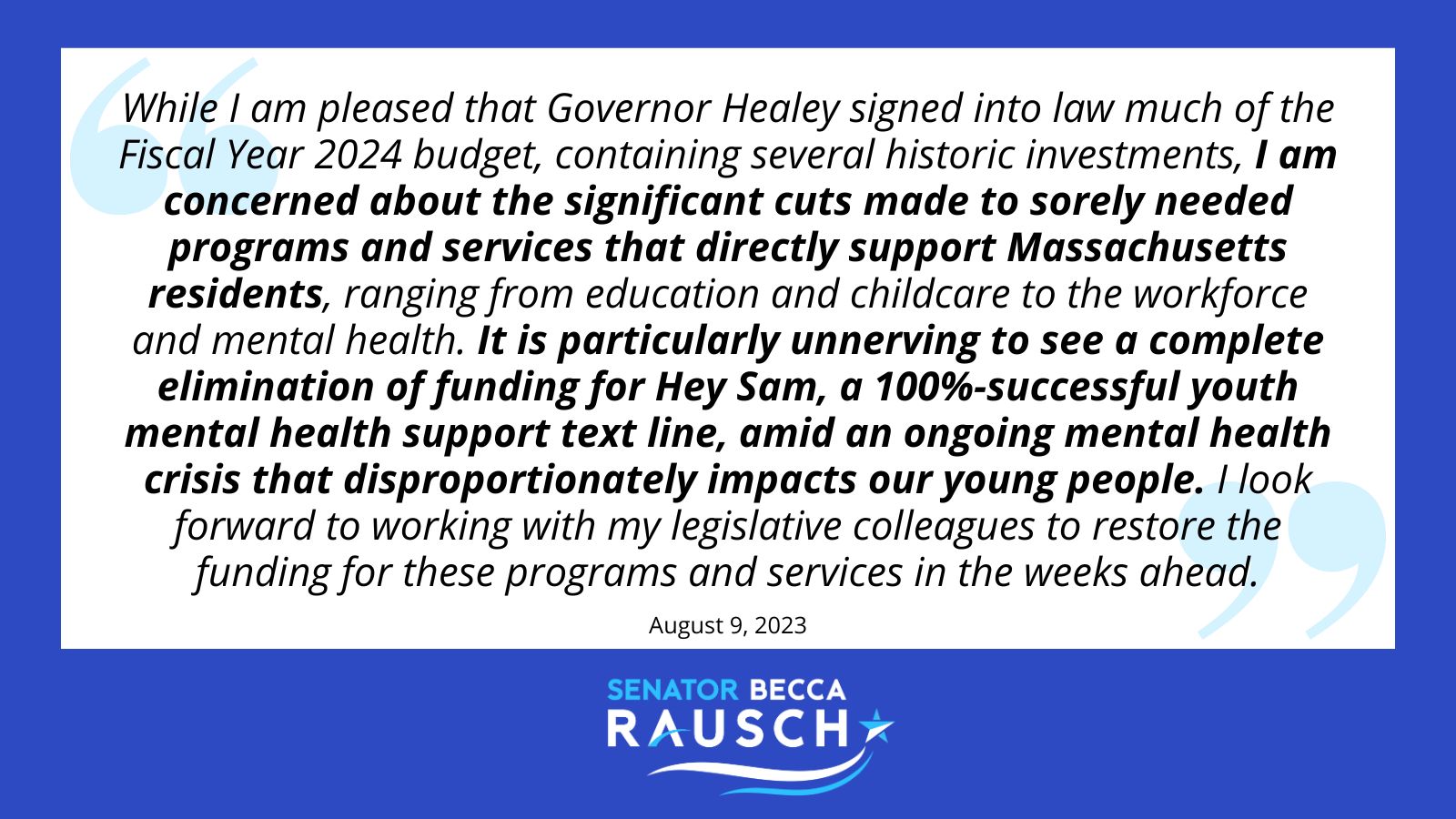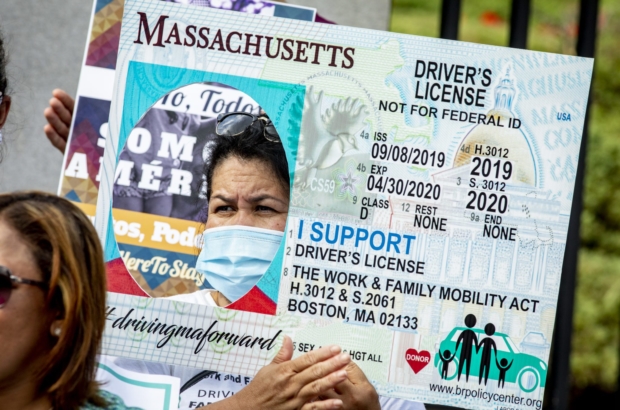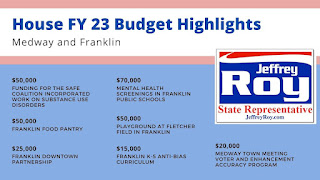United States Senator Ed Markey has endorsed Jeffrey Roy in his State Representative race in the 10th Norfolk District (Franklin and Medway).
“I am proud to endorse Rep. Jeff Roy for re-election as the State Representative for Franklin and Medway. He has been a partner and champion on climate and energy issues, spearheading efforts to pass landmark climate and energy bills, as well as legislation to address substance use disorder, economic development, and civil rights. And he has consistently delivered critical local aid to Franklin and Medway. I look forward to continuing to partner with him."
 |
| United States Senator Ed Markey has endorsed Jeffrey Roy |
In addition to Markey, Roy has been endorsed by Governor Maura Healey, Attorney General Andrea Campbell, Speaker of the House Ron Mariano, Senate President Karen Spilka, Massachusetts AFL-CIO, Massachusetts & Northern New England Laborers’ District Council, Environmental League of Massachusetts Action Fund, Massachusetts Organization of State Engineers & Scientists, Massachusetts Nurses Association, and 1999SEIU. He has also been endorsed by Franklin Town Council Chair Thomas Mercer; Franklin Town Council Vice-Chair Robert Dellorco; and Franklin Town Council Clerk Glenn Jones.
Governor Healey shared the following:
“Representative Roy has been a highly effective and skilled legislator for more than a decade, advancing important laws addressing education, economic development, healthcare, criminal justice, and civil rights. In his role as Chairman of the Telecommunications, Utilities and Energy Committee, Jeff spearheaded efforts to pass landmark climate and energy legislation to legislation strengthening protections for survivors of abuse and exploitation. His district and the Commonwealth will benefit from his continued leadership at the State House."
Attorney General Campbell noted that Jeff
“has been a partner in the work, including protecting our environment and addressing climate change. With significant local and state government experience, he is passionate about getting things done and having an impact on all of his constituents, including his seniors, students, and those often forgotten.”
In its endorsement, the Mass State Police Commissioned Officers Association President William “Duke” Donaghue remarked that MSP COA
“deeply appreciates your past support for law enforcement and your commitment to public safety in the Commonwealth. Your proven leadership and dedication aligns perfectly with our mission to ensure the safety of our communities and the well-being of our members.”
Massachusetts AFL-CIO President Chrissy Lynch stated:
“The Massachusetts AFL-CIO Executive Council has officially voted to endorse your re-election. On behalf of nearly half a million members across the Commonwealth, we are proud to support candidates like you who have demonstrated a commitment to the values and principles of the Labor Movement, and create an economy that works for working people.”
"I am absolutely thrilled to receive the support and endorsement from all of these groups and individuals," noted Roy. "In my years in the Massachusetts House I have built strong and lasting relationships and have partnered with them to make Massachusetts and our communities great places to live, work, and raise a family. With their continued support, I am confident we can continue to deliver results for Massachusetts."
Since 2013 Jeff has been part of a legislative team that has addressed the issues of education, economic development, the coronavirus pandemic, health care, substance use disorder, criminal justice, civil rights and social equity, gun safety, climate change, energy, and the environment. In addition, he led efforts to:
• Draft and pass the bill accelerating a responsible, innovative and equitable clean energy transition in 2024;
• Draft and pass an act to prevent abuse and exploitation in 2024;
• Draft and pass the clean energy and offshore wind bill in 2022;
• Finalize the Roadmap Bill on climate change in 2021;
• Draft and pass the Genocide Education Act in 2021;
• Draft and pass legislation on Step Therapy and Patient Safety in 2022;
• Draft and pass legislation relative to sexual violence on higher education campuses in 2021;
• Draft and pass legislation increasing transparency and financial reporting requirements for higher education institutions in 2019;
• Draft and pass legislation that increased transparency and civic engagement by creating a searchable online database of legal notices in 2015;
• Pass legislation lowering thresholds on specialty license plates, making them available to smaller charities and causes in 2015; and
• Pass legislation to create a Regional Dispatch Center for Franklin, Norfolk, Wrentham, and Plainville in 2013.
He has also led efforts to bring millions of dollars in local aid for schools, roads, infrastructure, public safety, arts, recreation, substance use disorder, economic development, historical preservation, and food insecurity. He has also helped thousands of constituents with issues involving unemployment, health care, human services, and other matters with state agencies.
Roy is seeking re-election as the State Representative for the 10th Norfolk District (Franklin & Medway). He is the Chair of the Joint Committee on Telecommunications, Utilities & Energy and previously served as Chair of the Joint Committee on Higher Education, and the Joint Committee on Health Care Finance.
He is also the Chair of the Manufacturing Caucus, which promotes and encourages “Making It” in Massachusetts. Previously, he served as a member of the Franklin Town Council, and the Franklin School Committee where he held the position of Chair for 9 of his 10 years. He also chaired Franklin's Master Plan Committee from 2012 to 2013.






![House Speaker Ronald Mariano and Senate President Karen Spilka answer questions from the press after a Monday afternoon meeting with the governor and other officials. [Sam Doran/SHNS] House Speaker Ronald Mariano and Senate President Karen Spilka answer questions from the press after a Monday afternoon meeting with the governor and other officials. [Sam Doran/SHNS]](https://commonwealthmagazine.org/wp-content/uploads/2022/10/10-17_Mariano_Spilka-620x410.jpg)







